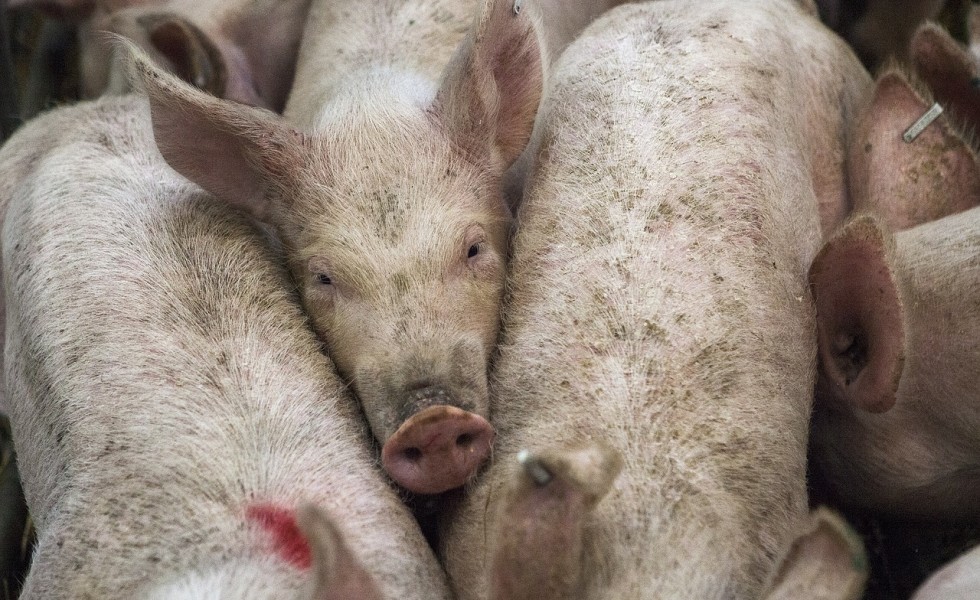“No problem, I’ll just stop eating pork.”
Posted on April 24, 2019

One tried-and-true tool politicians use to deflect public criticism is as old as politics itself: beat up the press.
Someone in Secretary Sonny Perdue’s U.S. Department of Agriculture (USDA) thought it was time to do just that April 8 as the “FSIS Office of Congressional and Public Affairs”—USDA’s Food Safety Inspection Service—issued a blistering rebuttal to an April 3 Washington Post story on proposed changes in the federal safety inspection regime at hog slaughtering plants.
The story, by a Pulitzer Prize-winning reporter, telegraphed its news in its first sentence: “The Trump administration plans to shift much of the power and responsibility for food safety inspections in hog plants to the pork industry… as early as May, cutting the number of federal inspectors by about 40 percent and replacing them with plant employees.”
The USDA reply five days later was unlike like anything I’ve ever seen in nearly 40 years of ag journalism.
“The Washington Post says that democracy dies in darkness,” began its anonymous writer. “If that’s the case, then The Washington Post’s story about the U.S. Department of Agriculture’s Food Safety Inspection Service (FSIS) is a solar eclipse.”
Just in case that opening metaphor was too murky and inside-the-swamp for us country folk, it went on to moralize that food safety is a “responsibility and mission so important that every FSIS employee takes an Oath of Office. If only The Washington Post was held to the same standard.”
The government-sponsored sarcasm was, as intended, noticed. Members of the Safe Food Coalition issued a statement the next day noting USDA’s “unsigned” reply “merely confirms the truth of the Post’s story” because of its use of “‘alternative facts’… to spin the news… using word play.”
For example, “…USDA asserts… ‘FSIS is not reducing the total number of federal inspectors by 40 percent’… However, USDA’s proposed rule clearly envisions that ‘the Agency would require 147 fewer… for swine slaughter inspection,’ i.e. a 40% reduction in the relevant inspection workforce…”
Tony Corbo, senior lobbyist for Food & Water Watch, an independent, non-partisan group “that champions healthy food and clean water,” sees USDA’s sharp reply as another step in its emerging trend to attack consumer groups that question its Big Ag rulemaking agenda.
The proof, he says, is that “There’s nothing in the USDA statement that responds to real problems USDA has had in implementing past changes to meat inspection rules. Instead, there’s a lot of double-speak to deflect Congress’s and public attention from these new, even bigger changes.”
Key U.S. pork importers are taking note, too, says Dr. Steve Suppan, senior policy analyst at the Institute for Agriculture and Trade Policy.
When, for example, the U.S. begins new trade talks with Japan, Suppan forecasts in an email, “Japan will demand re-inspection and testing of fresh pork at the port of entry” if USDA implements what Japan sees as weakened pork slaughter inspection rules.
The reason is that if Japanese Prime Minister Shinzo Abe “agrees that USDA (inspection) standards are ‘equivalent’ to Japan’s, not withstanding all contrary evidence, Abe’s party will pay at the polls.”
If that global worry spreads, the threat to the U.S. pork sector would be catastrophic because 26 percent of all (federally-inspected) American pork, valued at $6.4 billion, was exported in 2018.
An even bigger market threat is brewing here, according to Post readers. Hundreds who read the pork inspection story posted remarks like “No problem, I’ll just stop eating pork,” or “Time to become vegan,” and “Chick-fil-A: the other white meat.”
Notably, many of the 814 reader comments wondered why USDA would cede federal power for food safety to corporate meatpackers. So far, USDA’s single response hinges on a daft Orwellian reference to solar eclipses.
That’s not good enough. American hog farmers don’t sell eclipses; they sell trust, a trust built in large part on USDA meat inspection. Any debasement of that standard to save a few million federal dollars while adding a few million to corporate profits is a fool’s trade.
© 2019 ag comm
Share This